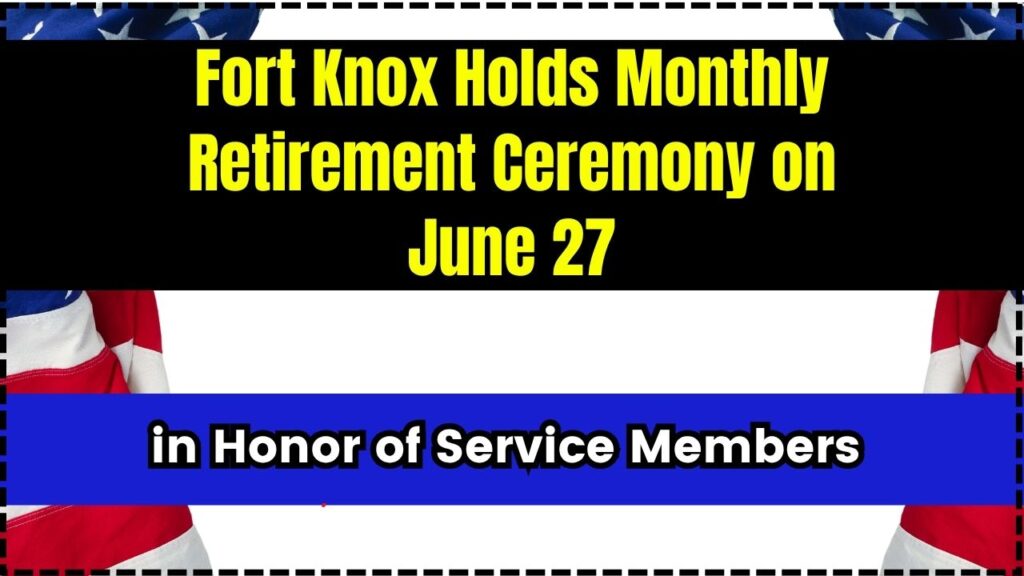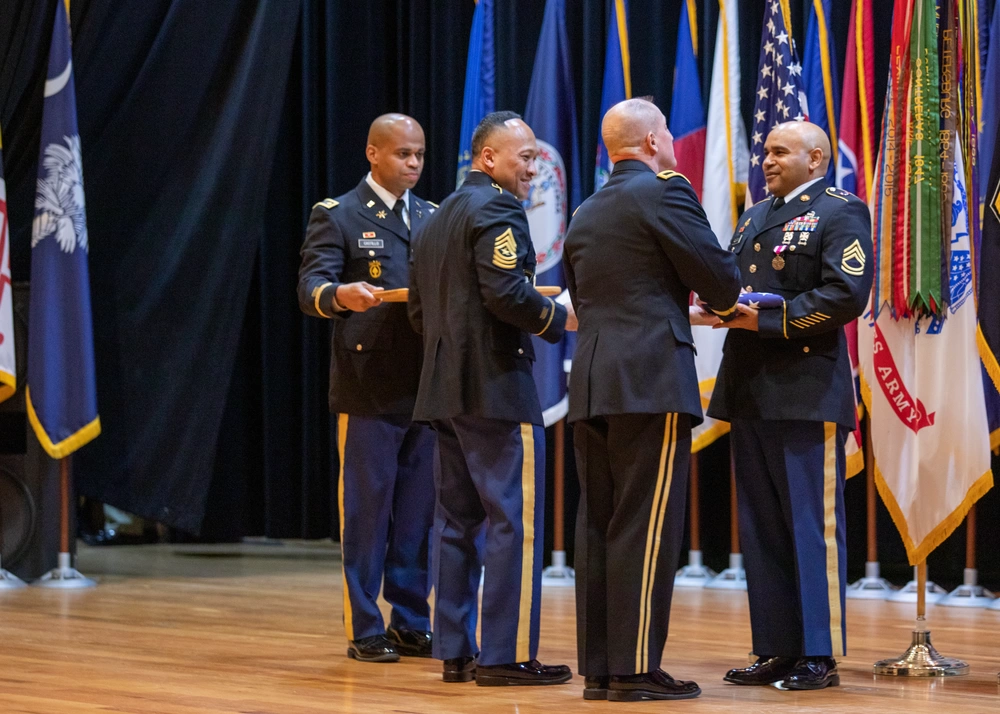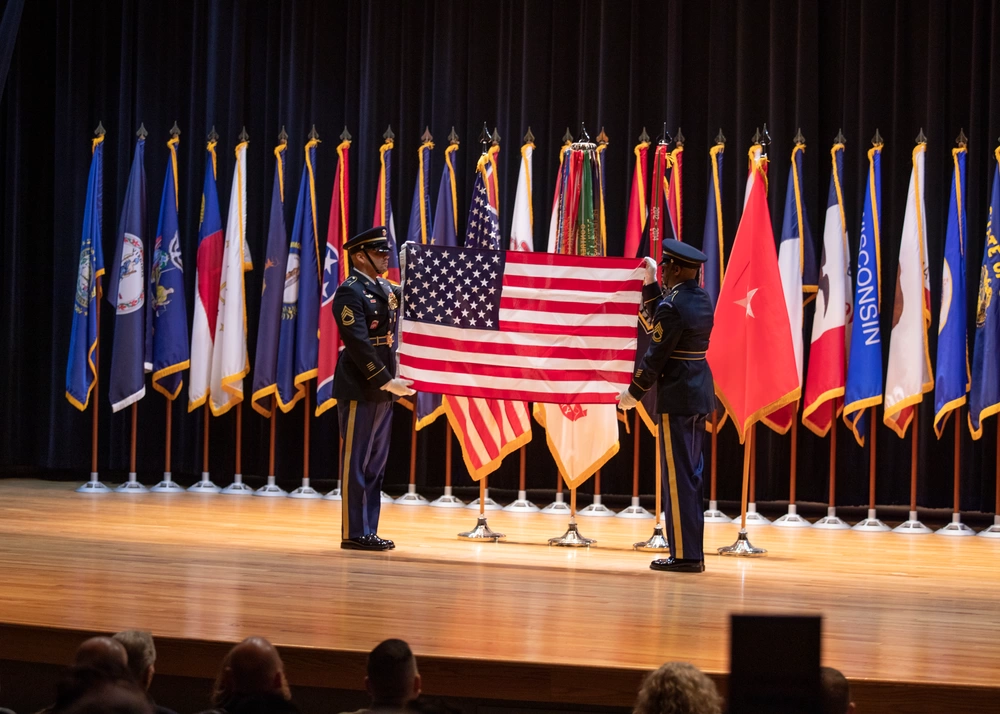
Fort Knox Holds Monthly Retirement Ceremony: The Fort Knox Monthly Retirement Ceremony – June 27 is more than just a scheduled event—it’s a living tradition. Every month, Fort Knox pauses to honor the commitment of Soldiers and civilians who’ve dedicated years—sometimes decades—of their lives to service. It’s a meaningful bridge from the rigors of military duty to the opportunities of civilian life. On Friday, June 27, 2025, at 3:00 p.m., the ceremony will take place inside the historic Waybur Theater at Fort Knox, Kentucky. Open to the public and live-streamed on Fort Knox’s Facebook page, this event celebrates nine honorees—seven Soldiers and two civilians—who represent what service to the nation looks like over time.
Fort Knox Holds Monthly Retirement Ceremony
The Fort Knox Monthly Retirement Ceremony on June 27, 2025, is more than a salute and a handshake. It’s a cultural milestone, a transition ceremony, and a heartfelt celebration. These men and women have worn the nation’s cloth with pride—and now they step into new roles as civilians, mentors, and leaders. Whether you’re attending in person, watching from afar, or planning your own retirement, this ceremony speaks volumes about what it means to serve—and to continue serving in new ways after the uniform comes off.
| Item | Details | Why It Matters |
|---|---|---|
| Date & Time | June 27, 2025 • 3 p.m. • Waybur Theater, Fort Knox | Monthly tradition honoring retiring personnel |
| Honorees | 7 Soldiers, 2 Civilians – 15 to 30 years of service | Commemorates career-long commitment |
| Hosts | Maj. Gen. Hope Rampy & CSM Robert Atkinson | High-ranking Army leadership |
| Livestream | Fort Knox Facebook Page | Widely accessible, especially for remote families |
| Retirement Support | VA Benefits, TAP, GI Bill, SkillBridge | Smooth transition into civilian life |
| Official Info | home.army.mil/knox | Schedules, resources, updates |
Why the Fort Knox Retirement Ceremony Matters?
At its core, the Fort Knox retirement ceremony is a respectful and emotional tribute. It doesn’t just check off protocol—it gives space for stories, service, and legacy. For Native American cultures, honoring elders and their contributions is a sacred act. Similarly, this ceremony is a space where the Army shows deep reverence for those who have worn the uniform.
With the average honoree serving between 20 and 30 years, these men and women have spent the majority of their adult lives committed to defending the nation, mentoring others, and building strong, cohesive units.
Meet the Retirees – Profiles in Service
These aren’t just names—they’re milestones in service. Here’s the full list of June’s honorees, including their service unit and tenure:
| Name | Unit | Years of Service |
|---|---|---|
| Lt. Col. Stuart Kazarovich | U.S. Army Human Resources Command | 20 |
| Teddy Davis | U.S. Army Human Resources Command | 20 |
| Jeffrey Kennedy | U.S. Army Human Resources Command | 15 |
| CSM Joseph Ingle | 4th Cavalry Multi-Functional Training Brigade | 29 |
| CSM Benjamin Lemon Jr. | Army HRC | 30 |
| MSG Nicole Graham | 1st Theater Sustainment Command | 20 |
| MSG Matthew Johnson | U.S. Army Recruiting Division | 20 |
| SFC Charles Sacco | U.S. Army Recruiting Command | 27 |
| SFC Josephine Titre | U.S. Army Recruiting Command | 20 |
Many of these retirees have completed multiple combat deployments, trained hundreds of junior Soldiers, and helped steer complex missions at home and abroad. Their contributions reach beyond uniformed service—they’ll now bring these skills into civilian industries, nonprofits, and communities.

Step-by-Step: What Happens When Fort Knox Holds Monthly Retirement Ceremony
The ceremony follows a consistent flow designed to honor each retiree while inviting attendees—both in person and online—into a space of reflection and pride.
Arrival and Seating
Guests usually begin arriving around 2:15 p.m. Seating is on a first-come, first-served basis. Dress is business casual for civilians; military attendees wear duty or dress uniforms depending on assignment.
Opening Remarks
Command leadership, typically the Garrison Commander or a division leader, sets the tone. For this event, Maj. Gen. Hope Rampy, commanding general of the U.S. Army Human Resources Command, will deliver the opening remarks, joined by CSM Robert Atkinson.
Honor Guard and National Anthem
The color guard presents arms, and the National Anthem plays. This moment is always stirring—veterans in attendance often stand tall with hand over heart or in salute.
Presentation of Retirees
One by one, each retiree is introduced by name, rank, unit, and years of service. Commanders and leaders often share brief stories or notable achievements.
Retirees are then:
- Handed a retirement certificate and flag
- Thanked personally by senior leadership
- Honored alongside their spouses and children
Family members often receive bouquets, pins, or certificates in recognition of their sacrifice.
Closing Speech and Community Reflections
A guest speaker or senior non-commissioned officer typically offers words of wisdom—covering everything from staying connected to veteran services to finding purpose in post-military life.
Fort Knox – A Pillar of Military History
Founded in 1918, Fort Knox has long been a cornerstone of U.S. Army strength and training. Home to the U.S. Army Human Resources Command, Army Cadet Command, and U.S. Army Recruiting Command, it plays a major role in both preparing new Soldiers and guiding those transitioning out.
The base has also historically hosted the United States Bullion Depository, making it a symbol of both defense and national security.
Retiring at Fort Knox is seen as a full-circle moment—many Soldiers begin and end their careers here.

Life After the Ceremony – Transitioning with Confidence
For many retirees, the transition from active duty to civilian life can feel daunting. But today’s service members leave with access to comprehensive resources:
1. VA Benefits
Veterans are eligible for:
- Healthcare coverage
- Disability compensation
- Mental health support
- Education through the Post-9/11 GI Bill
2. Transition Assistance Program (TAP)
All retirees attend TAP workshops, which provide:
- Resume writing and interview practice
- Job fairs
- Career exploration tools
3. SkillBridge Program
This allows service members to intern with companies or government agencies during their last 180 days in uniform.
4. My Career Advancement Account (MyCAA)
Spouses of retirees often qualify for training and certification funding through MyCAA.
How Families and Communities Can Participate?
This isn’t just about Soldiers—it’s about the families who supported them and the communities that welcome them back.
What can you do?
- Attend the ceremony, shake a hand, say thank you
- If you’re an employer, hire a veteran
- Schools can invite retirees to mentor students or coach sports
- Churches, nonprofits, and civic groups can support their transition
Emotional Impact – What It Feels Like
This is not just a formal event—it’s deeply personal.
For many, it’s the last time wearing the uniform in an official capacity. You can see the emotion—on the faces of honorees, their kids, their parents. Spouses often feel a surge of pride and relief.
One past honoree, CSM Joseph Ingle, said:
“Retiring here feels like closing a good book. You turn the last page, but the story stays with you forever.”
Goodbye to Retirement at 65: Social Security Raises the Bar—Starting in 2026
Terrified of Going Broke in Retirement? These 9 Expert Tips Can Save Your Future
How AFGE Just Stopped Devastating Retirement Cuts for Federal Workers; What It Means for You











